Hack the Bay
Hack the Bay
In celebration of the 50-year anniversary of Earth Day, the CMC partnered with Booz Allen Hamilton, Inc. (Booz Allen) to host a social good hackathon aimed at exploring water quality monitoring data collected throughout the Chesapeake Bay Watershed. We invited data scientists, developers, designers, problem solvers, and storytellers to explore CMC’s data and create solutions to address environmental and social issues in the Bay.
The CMC and Booz Allen came together in February 2020 to host a Designathon at the Booz Allen office in DC. The goal of the Designathon was to refine the scope of the four challenges for the Hackathon event. The Hackathon was scheduled to be held in person in April 2020 around Earth Day. However, due to the COVID-19 pandemic, we had to reschedule and reformat the experience, so we instead we held the event virtually from August 3rd to September 20th. Throughout the month we hosted a variety of other events related to the Hackathon.
- Kick-off (8/3): Launched the hackathon, introduced the partners and stakeholders, and discussed the data and challenges.
- Wrangling Geospatial Data (8/5): A coding tutorial for newcomers to geospatial data using open source packages/tools in R, Python, and QGIS.
- Bay Issues Panel (8/11): An expert panel on current issues facing the Chesapeake Bay, including the status of the TMDL, the emerging issue of microplastics, and priorities under Covid-19; and success stories of public-private partnerships and citizen science monitoring.
- Environmental Justice Panel (8/18): An expert panel on the social impact of water quality, covering subjects from climate migration to public health, to green infrastructure and equity for clean public spaces.
- Winner Presentation (9/29): Wrap up for the hackathon and presented the challenge winners.
During the Hackathon, participants explored 4 different challenges, aimed at answering different questions about the health of the Chesapeake Bay and watershed. We had over 400 participants sign up for the hackathon from 37 different Countries. We had 10 completed submissions that met all of the requirements and were sent out for judging and 10 creative, partially scoped solutions. You can view the overviews of the submissions below and can view all of the submissions on DevPost.
The CMC team is so grateful to everyone who participated and for all the hard work that went into completing each submission! By exploring the Bay’s water quality and benthic observations and their intersection with other geospatial, temporal, environmental and demographic data, we hope to further empower decision-making and inspire action for watershed restoration.
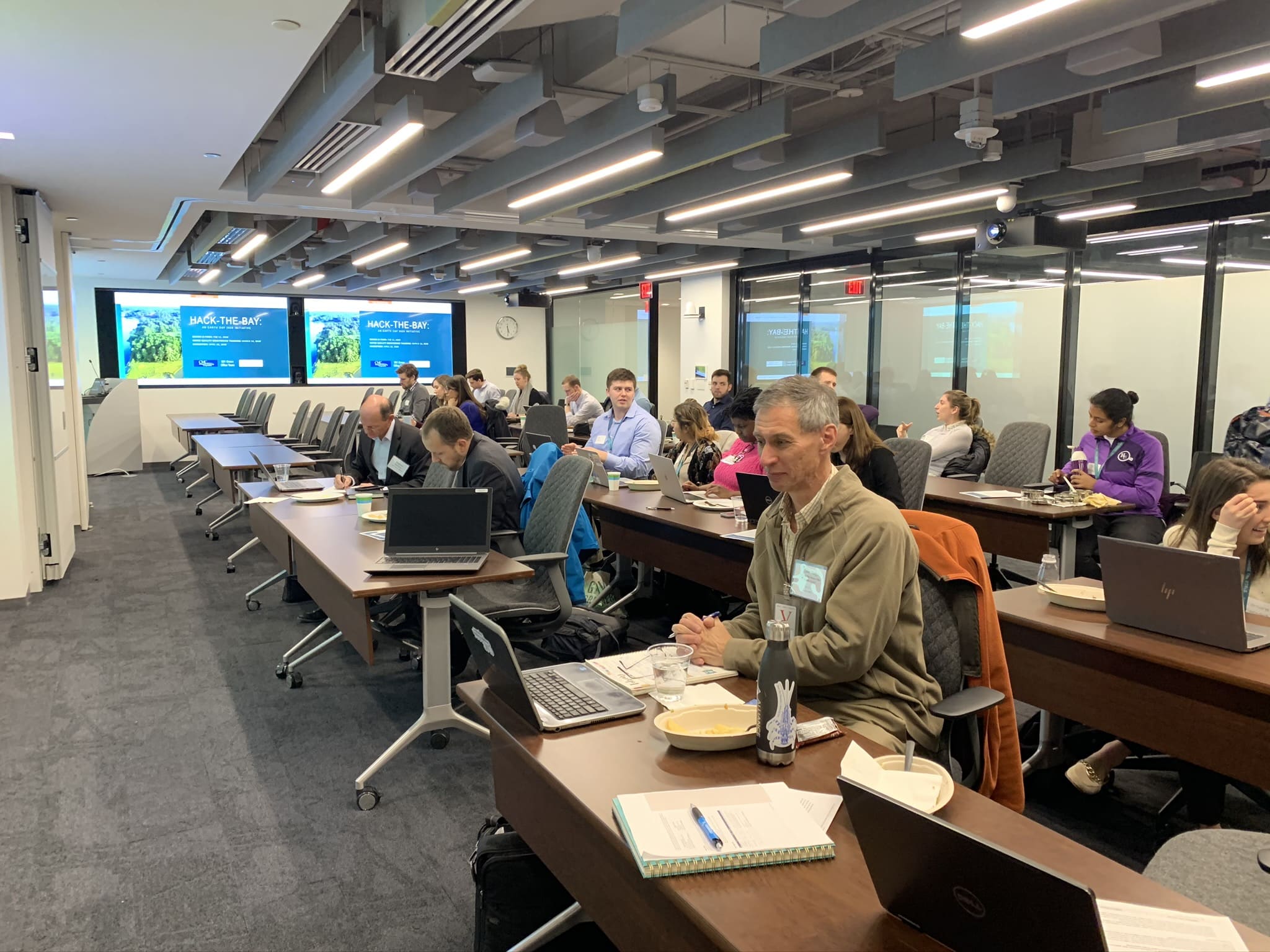
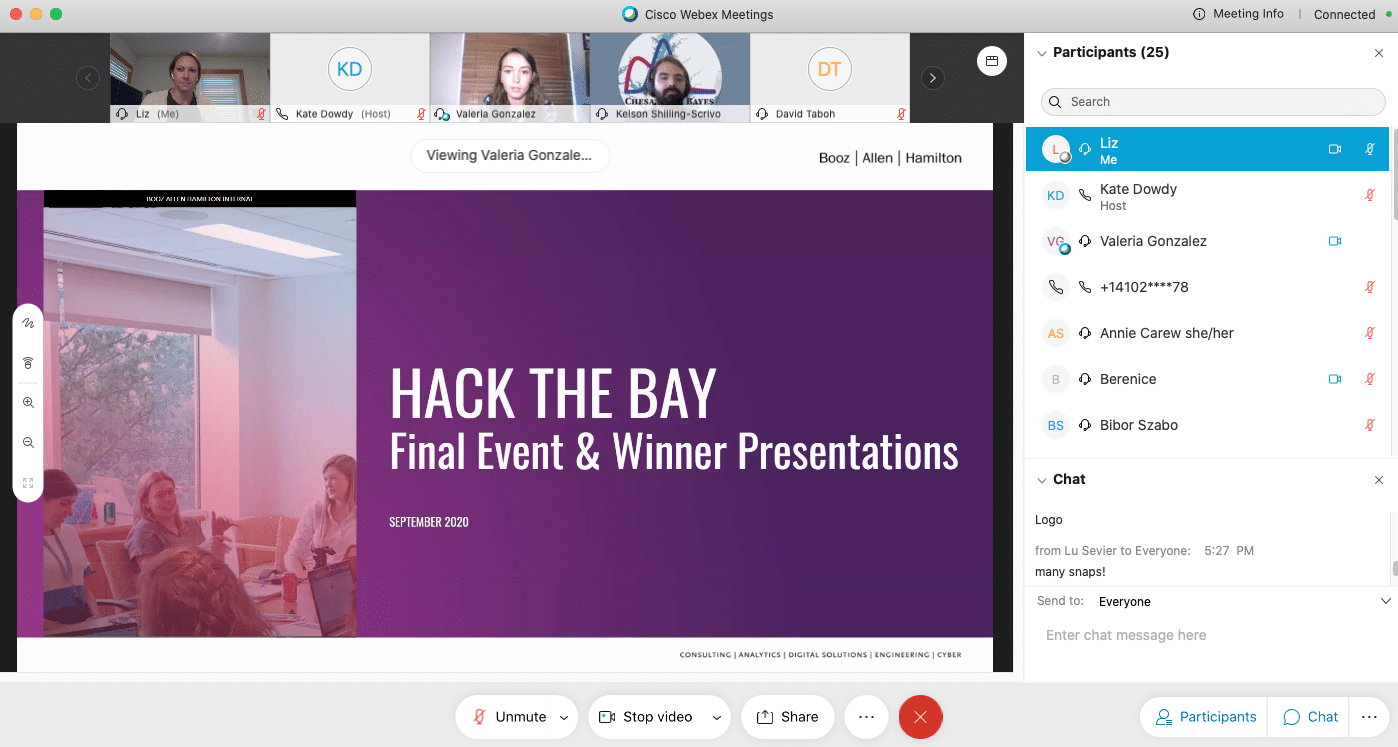

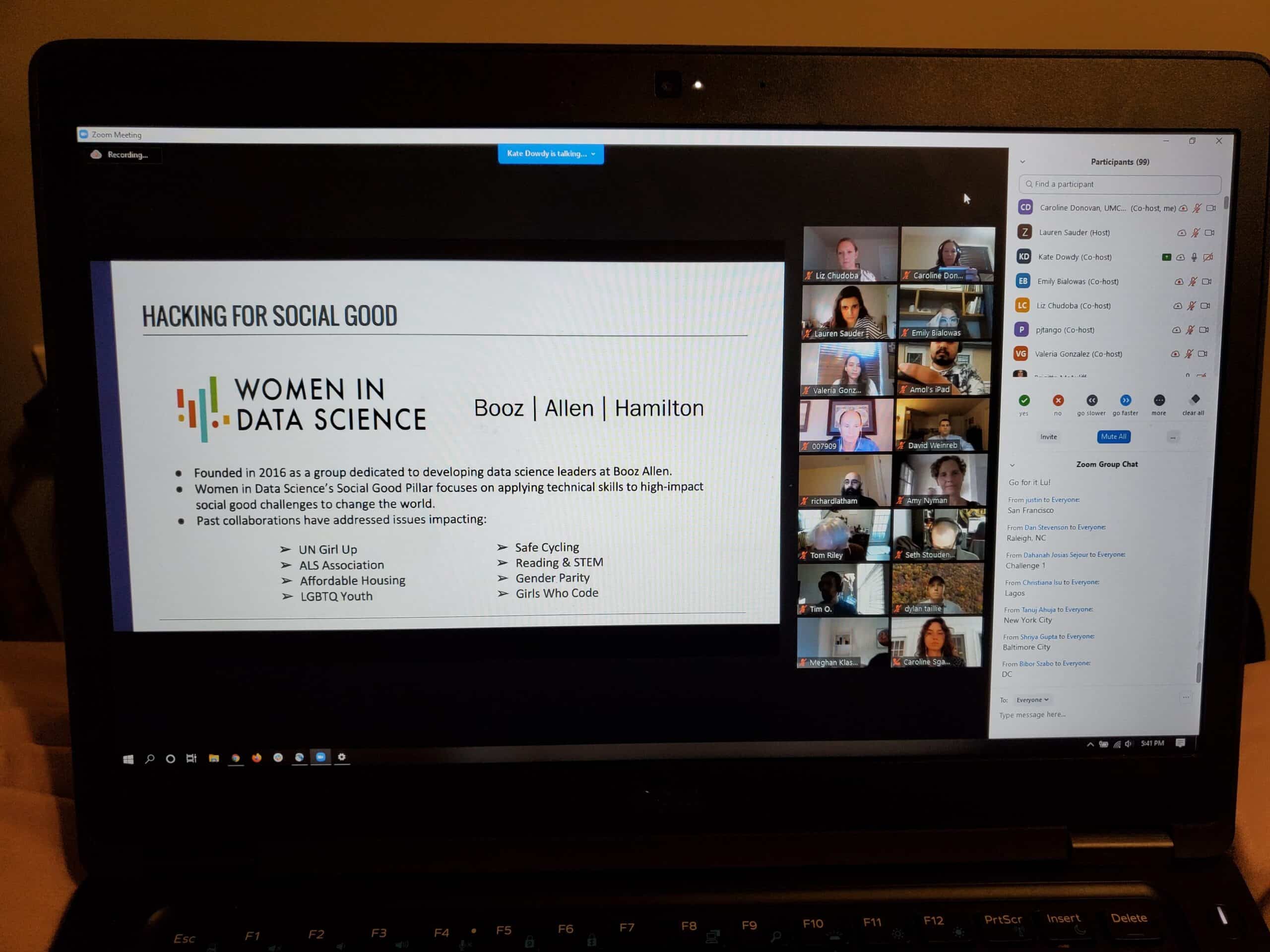
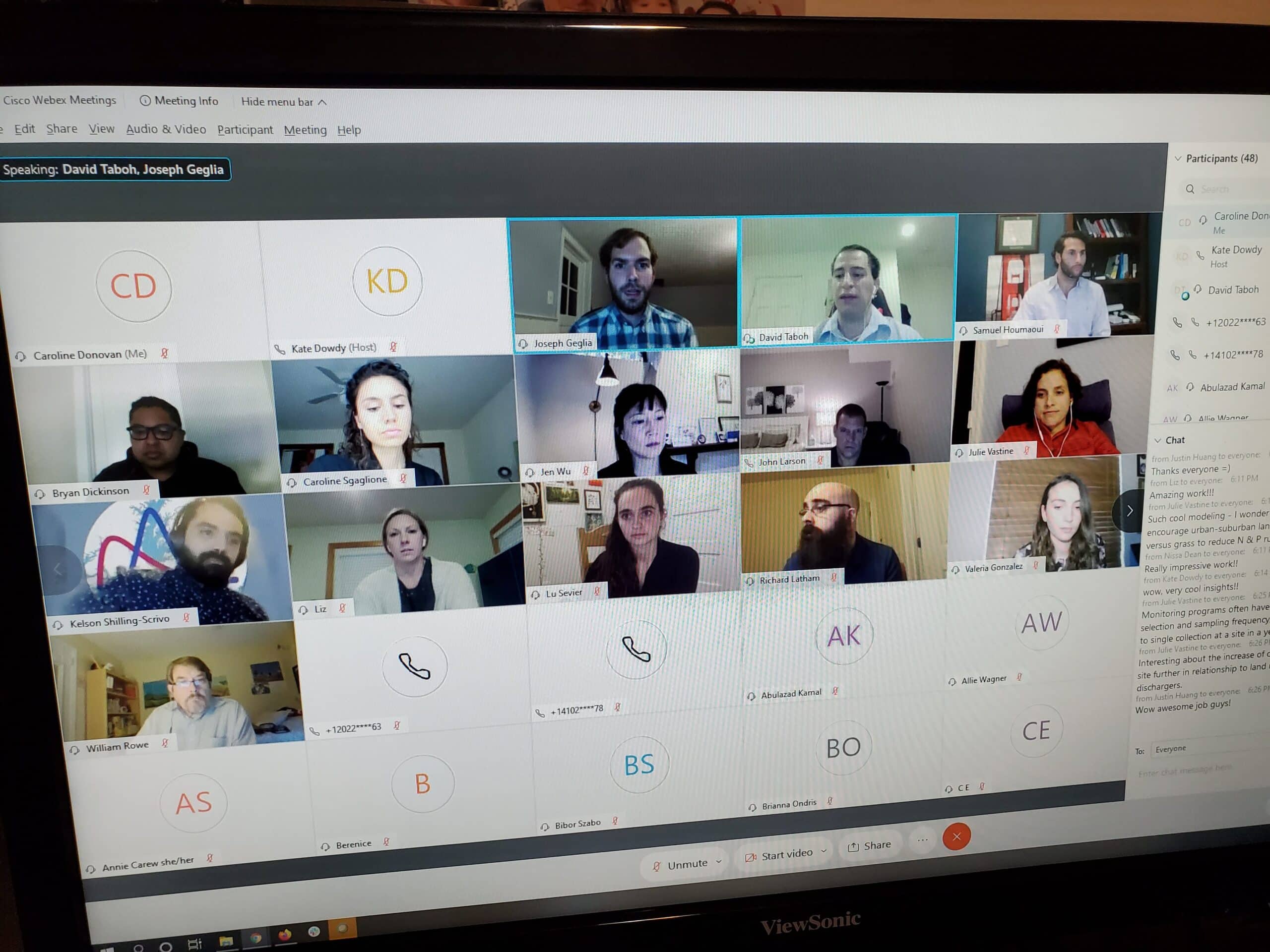
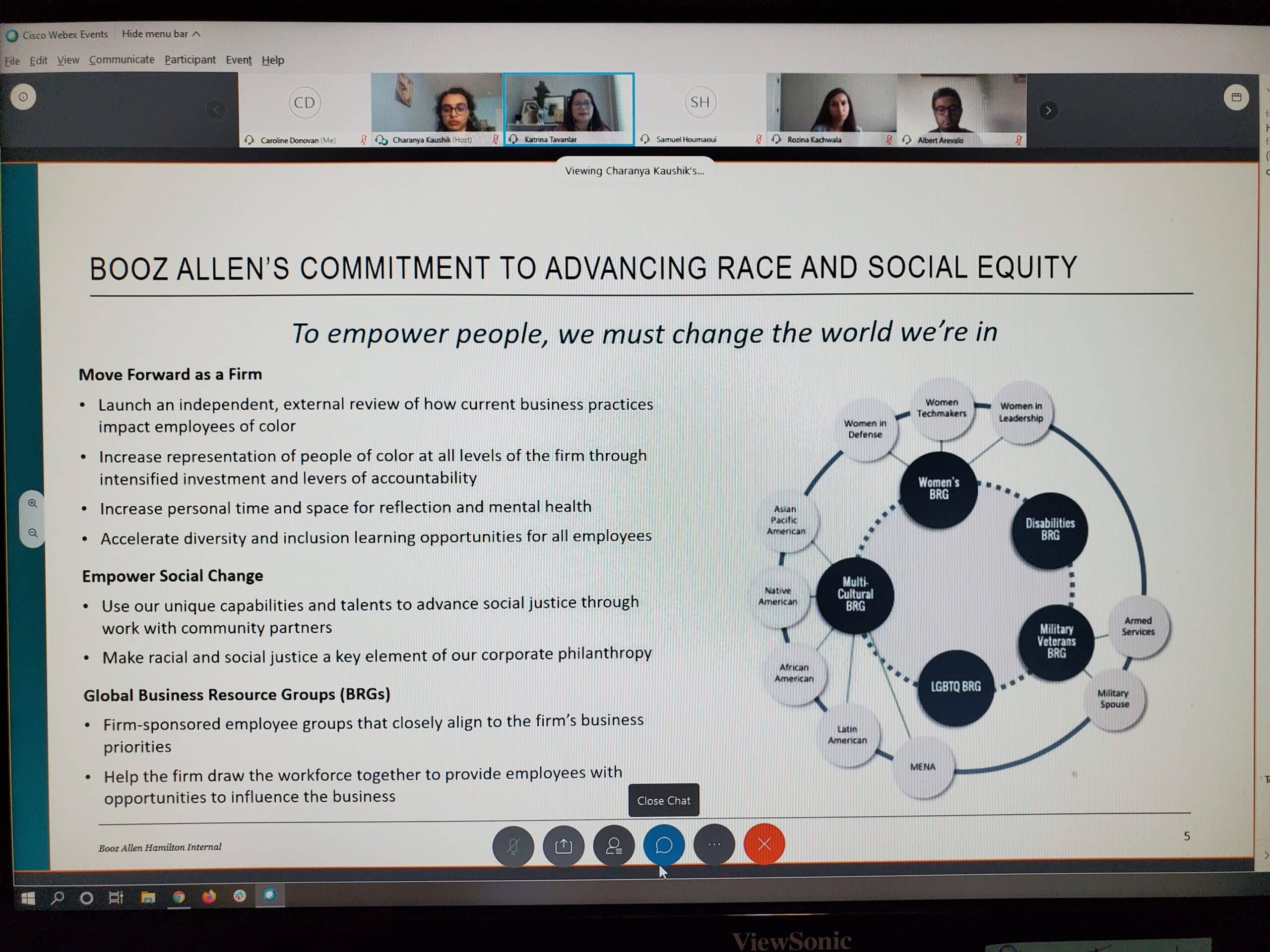
Challenge 1: Develop a Restoration Case Study
This challenged asked participants to use CMC, CBP, and/or other external datasets to tell a story about how water quality has changed over time in the Chesapeake Bay watershed and explore the relationship to surrounding land cover. Participants were free to choose their parameters to analyze and watershed or region to explore, they were encouraged to find datasets with at least 3 years of consecutive data.
The projects submitted explored various parameters at different scales (local watershed to a regional approach) and created well thought out tools and resources to connect this data to the surrounding land uses. The CMC network can use these tools moving forward to assess policy and management decisions.
Judging for this Challenge was extremely close, but Hack the Bay was ultimately chosen as the winner because of the immediate use of the product and the scalability of the tool.
Challenge 2: Identifying Data Gaps
This challenged focused on demonstrating how and where CMC’s data fills the gaps in the Chesapeake Bay Program’s database, and where data gaps in the watershed still exist.
Participants provided an in depth analysis on progress the CMC has made towards goals established in the prioritization report and a robust tool to help the CMC better target locations and parameters for new data collection in the future. Even though the two teams work independently, the two submission work together to tell the whole story of the CMC from where we have been to where we are going and both will be used by the CMC team as we prepare for the next 6 years of the project.
Since both submissions provided an in depth analysis and incredible useful tools, the judges decided that there was a tie for the winner.
Challenge 3: Modeling Water Pollution
The CMC’s water quality indicators can be linked to types of pollution and their sources in the tributaries of the Chesapeake Bay. This challenge focused on using machine learning to build a predictive model for pollution in a section of the Bay using CMC, CBP, and external geospatial datasets.
Shore is Fun – Winner
Created by: Bryan Dickinson, Berenice Dethier, Justin Huang, Jen Wu, Tim Osburg
Effect of Land Cover on Pollution in the Chesapeake Watershed
Created by: Megan Maloney, Joe Barrow and Charlie E
Modeling Toxic Phosphorus Levels in the Chesapeake Watershed
Created by: Bibor Szabo, Clay Carson, Mike Blow
Booz_Allen_Presentation from Clay on Vimeo.
Challenge 4: Design a Water Quality Report Card
This challenged focused on designing a local or regional version of the Chesapeake Bay report card that ties water quality to local communities’ values. We did not have any full submissions for this challenge, but we did have many concepts and ideas submitted that the CMC team will continue to refine and use moving forward.
Communicating Water Quality Information to Diverse Audiences
Created by: J Campbell and Cynthia Campbell
Action-Oriented Report Card
Created by: Cameron Hanson
Water Quality Report Card
Created by: Ranjani Chandran and Santhosh Kumar
D.C Potomac River Report Card
Created by: Tomoyoshi Kimura
